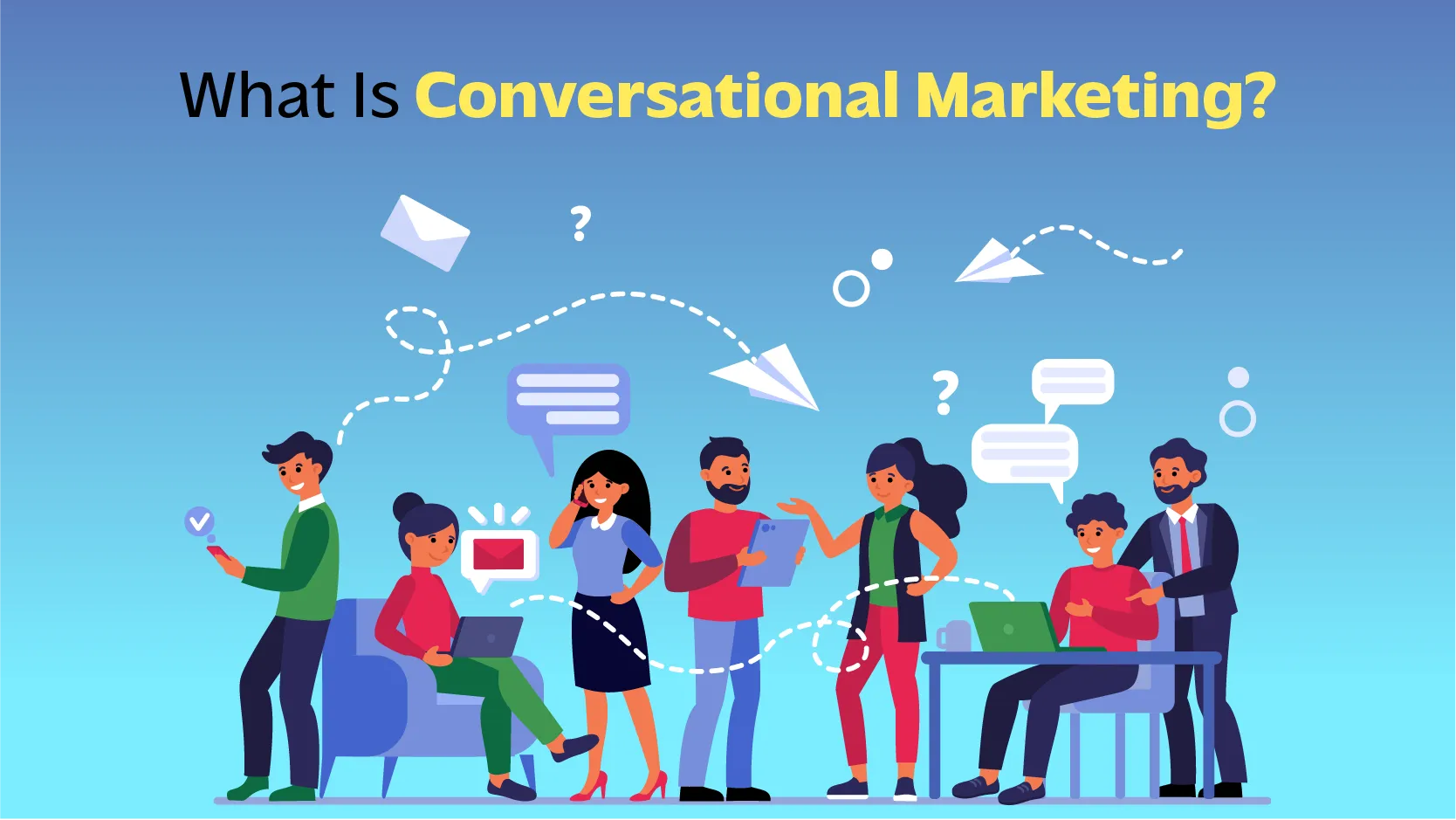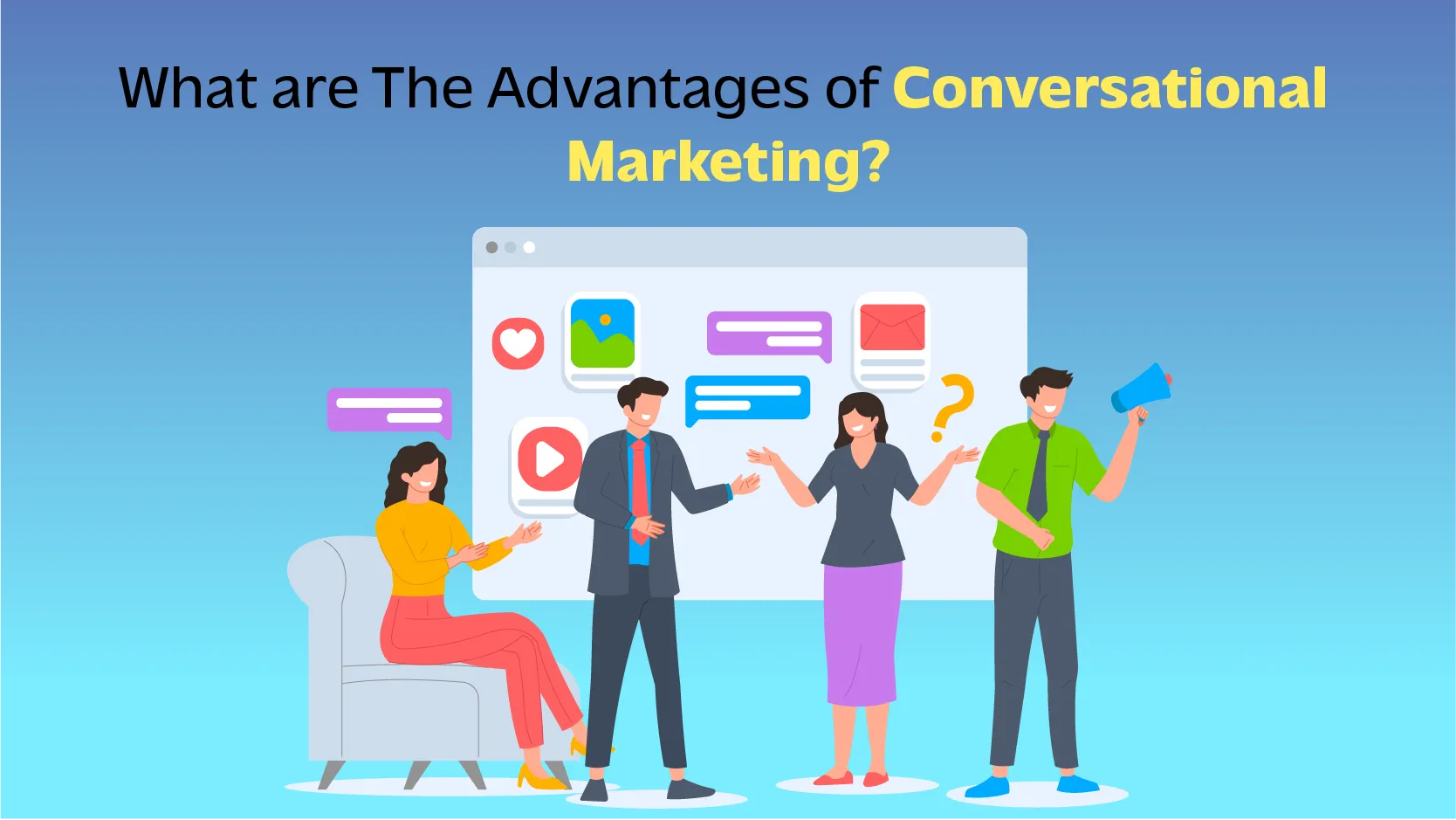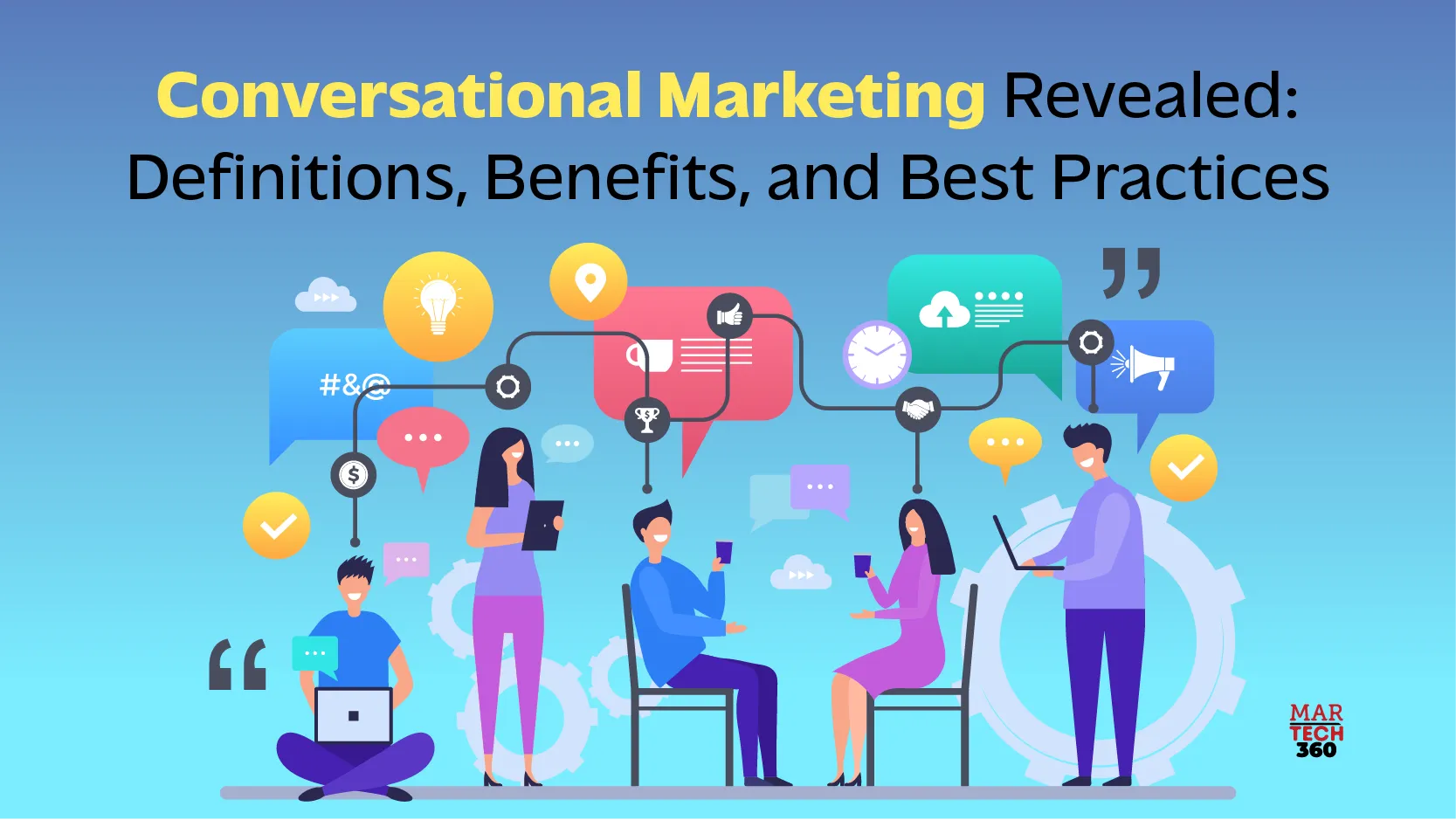Legacy marketing strategies are usually one-way. Enterprises leverage multiple digital platforms, such as messaging and others, to deliver well-drafted marketing content. However, the majority of the brands do not have the bandwidth to accept responses to the messages. Clients today want to interact with the brand to develop a trustworthy relationship with them.
According to a report by Meta, almost 35% of shoppers want instant responses at any time. The report also highlights that 31% expect personalized advice.
As customer demands change, brands must make strategic changes to their marketing strategy to improve their reach. Brands that do not evolve to meet customer demands, miss out on various opportunities to engage customers and increase the conversion rate. Marketing decision-makers are exploring opportunities to embrace conversational marketing in their operation to interact with customers when their interest is at its peak.
In this blog, let us have a look at what conversational marketing is, its benefits, and the best practices.
What Is Conversational Marketing?
 Conversational marketing is a dialogue-driven marketing approach that businesses embrace to interact with clients and prospects through customized, real-time interaction on various marketing channels preferred by the customer, like email, live chat, website, social media, and other messaging applications. This marketing approach offers a unique customer experience to develop trustworthy relationships with the clients and buyers.
Conversational marketing is a dialogue-driven marketing approach that businesses embrace to interact with clients and prospects through customized, real-time interaction on various marketing channels preferred by the customer, like email, live chat, website, social media, and other messaging applications. This marketing approach offers a unique customer experience to develop trustworthy relationships with the clients and buyers.
Drift, a well-known marketing and sales tool, coined the term, “conversational marketing”. The term is now commonly used in the digital marketing industry. The reason Drift coined the term is because it identified how legacy B2B sales cycles alienated the buyers.
Typically, conversational marketing starts when the user visits the company website or application. Most of the time, the website or the application will throw a pop-up message to the user asking them about what they are looking for or how the chatbot can help them.
Effective conversational marketing approaches enable organizations to optimize their marketing campaign and the customer experience by predicting client needs and expectations quickly as the prospect makes contact with the brand. Business decision-makers are integrating artificial intelligence (AI) powered conversational marketing chatbots to execute real-time interactions with potential and existing clients in a natural tone. This approach streamlines it for users to engage with the brand and convert more leads quickly.
Conversational marketing Vs. Inbound marketing
Many marketers get daunted by the question of whether inbound and conversational marketing is the same or different.
A conversational marketing approach is a part of the inbound marketing strategy. Marketers leverage the inbound marketing strategy to lure customers by interacting with them through their preferred channel. This marketing strategy is the way brands engage with their clients by empowering them with options like when, how, and where they can interact with the brand.
Also Read: What is Campaign Optimization and Why is it Important?
What are The Advantages of Conversational Marketing?

Marketers can enhance their client acquisition, strengthen loyalty, and improve engagement rates throughout their customer lifecycle using this marketing strategy. The main reason for this is that the conversational marketing approach allows enterprises to reply to marketing messages and interact with brands in real-time. The following are the advantages of embracing this marketing strategy:
● Improve Customer Engagement and Conversions
The sales conversion rates with the brands that respond to the clients in real time will be higher. Brands need to ensure they are the first responders to the client’s queries. Marketing teams need to ensure that they have personalized interactions with the clients on the channels they prefer.
● Enhance Customer Experience and Satisfaction
Embracing this market strategy allows enterprises to offer clients real-time answers and help them across their complete customer journey.
● Gather Insightful Customer Data
Conversational marketing is one of the most effective techniques to gather zero-party data from customer interactions. It empowers the brands to enrich customer profiles and deliver enhanced CX. Brands can even have future conversations with relevant recommendations and offers.
● Boost Customer Loyalty
Leveraging this marketing approach is an effective way to offer helpful and customized answers to client queries faster. Interacting with clients on the channels they prefer to interact with friends and family will help develop relationships and customer loyalty.
● Cut Cost Significantly
Integrating conversational AI tools that have automation will enable organizations to automate the majority of customer engagements. It results in effective efficiency and allocation of the workforce and other resources, resulting in cost savings.
● Offer Around-the-clock Availability
Implementing conversational AI chatbots assists enterprises in helping customers with their queries and concerns at any time. This approach allows brands to offer an enhanced customer experience and minimize purchase abandonment.
What are the Best Conversational Marketing Strategies?
Selecting the right conversational marketing strategy should be dependent on the organization’s goals. These business objectives will help decision-makers understand what they are trying to achieve with this marketing approach. Business decision-makers can start evaluating the type of interactions they would like to have with their prospects and what challenges they are trying to overcome with these strategies. Following are the top conversational marketing strategies that marketers can consider implementing:
1. Select the Right Channels and Define Q&As
Understanding the audience and their requirements can assist marketers in determining the types of channels they would need and the purpose behind them. Marketers can respond to customer queries through generic Q&A, offer relevant information about the products and services, help in finalizing a purchase, or market the gated content or demos. The types of questions and responses the bot covers will be dependent on the data the sales team requires to qualify a lead. The business objectives define the nature of the questions and should be altered to fit the various stages of the customer journey.
2. Customize and Optimize
Tailoring the interaction depending on the client’s behavior, and their stage of the customer journey allows brands to deliver the right content in the right channels at the right time. Marketers can share a PDF of the user manual with a current client or assist a new visitor with a signup strategy by automating customer interactions. Consumers would like it when relevant, reliable, and accurate information is shared with them. Hence, this strategy assists in strengthening the customer relationship.
In order to make the most out of the conversational marketing strategy, marketers have to constantly evolve their marketing interactions. After integrating the conversational marketing chatbot, marketers need to test it regularly. Business decision-makers should evaluate the interaction data, the customer journey, and engagement rates and adjust the conversation flow depending on the results. Once the marketers get a knack for it, then the process should be repeated continuously.
3. Take Customer Feedback Proactively
Gathering feedback from the clients and prospects plays a vital role in evolving the conversational marketing strategy in the future. Collecting customer feedback will help marketers understand their weaknesses and improvement opportunities to seize. This feedback-driven approach allows marketers to deliver more insightful interactions and improve the customer experience.
Marketing Goes Conversational
Big and reputed brands are developed on the experiences they offer. Consumers today expect two-way conversations more than just one-way marketing messaging. The market today is evolving exponentially, and the competition is getting more fierce. Embracing the best conversational marketing strategies will enable marketers to revolutionize their operations by offering customized, value-adding experiences at each step of the customer journey and the right channels.


Comments are closed.